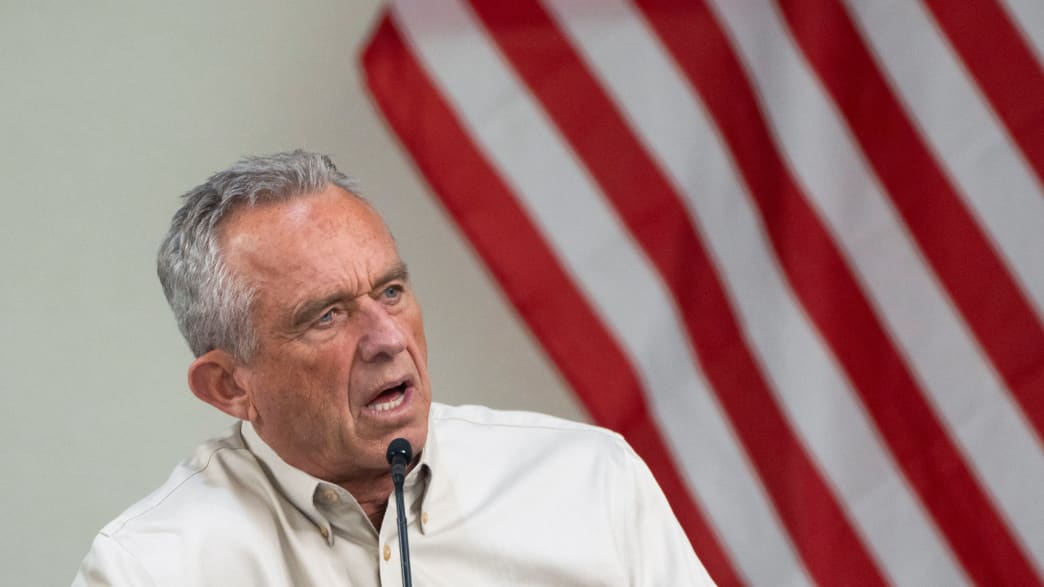Trump-Backed Small Business Group Rejects His Labor Secretary Nominee
In an unexpected twist, President-elect Donald Trump’s recent nominee for Labor Secretary has sparked opposition from a typically pro-Trump organization. The Job Creators Network, known for advocating on behalf of small businesses, has expressed strong disapproval of Oregon GOP Rep. Lori Chavez-DeRemer for this pivotal role.
Chavez-DeRemer's support for the controversial PRO Act has led to her nomination being contested by the Job Creators Network, Just the News reported.
President-elect Donald Trump announced the nomination of Lori Chavez-DeRemer as the new Labor Secretary earlier this month, shortly after her narrow defeat in a reelection bid. This decision has divided opinions, particularly among small business advocates.
Background of the PRO Act's Controversy
The PRO Act, which stands at the center of this controversy, is criticized by the Job Creators Network for potentially damaging small businesses. The act is known for its stance on ending right-to-work laws and promoting forced unionization, which the network argues could stifle small business operations.
"Job Creators Network opposes Lori Chavez-DeRemer as Labor Secretary," stated the organization. "Her support for the radical PRO Act tramples small businesses, ends right-to-work, and forces unionization. Small businesses need a champion, not a Big Labor ally," they added.
This position marks a significant deviation from the network’s usual alignment with Trump’s business-friendly policies, highlighting the complexities of labor and business interests colliding within political appointments.
Union Support Contrasts Small Business Concerns
Despite the pushback from small business advocates, notable labor unions have backed Trump’s choice. The American Federation of Teachers and the National Education Association, both influential unions, have shown their support for Chavez-DeRemer, underscoring a rare alignment of labor interests with a Trump nominee.
“It is significant that the Pres-elect nominated Rep. Chavez-DeRemer for Labor,” commented Randi Weingarten, President of the American Federation of Teachers. This endorsement from major unions adds an intriguing layer to the ongoing debate over her nomination.
Chavez-DeRemer’s history of gaining labor union support in her district, despite her recent electoral loss, suggests a complex dynamic between her labor policies and electoral politics.
Trump's Vision for a United Labor Department
Amid these controversies, President-elect Trump has remained optimistic about Chavez-DeRemer’s potential to bridge gaps between diverse economic stakeholders. "Lori's strong support from both the Business and Labor communities will ensure that the Labor Department can unite Americans of all backgrounds behind our Agenda for unprecedented National Success - Making America Richer, Wealthier, Stronger, and more Prosperous than ever before!" Trump proclaimed.
This statement reflects Trump’s vision of a unified approach to labor and business interests under Chavez-DeRemer’s leadership, aiming to foster an environment of cooperation and collective prosperity.
The endorsement from Trump emphasizes his confidence in Chavez-DeRemer's ability to navigate the complex landscape of American labor relations, suggesting a strategic alignment with broader economic goals.
Implications for Small Businesses and Labor Policies
The opposition from the Job Creators Network underscores a critical challenge in Chavez-DeRemer’s path to confirmation. It also highlights the broader national conversation about the balance between supporting businesses and protecting workers' rights.
The nomination has not only unveiled fractures within Trump’s support base but also posed significant questions about the future direction of labor policies in the United States. How this will impact both small businesses and labor unions remains a pivotal aspect of the ongoing political dialogue.
As the debate continues, stakeholders from various sectors are closely monitoring the situation, awaiting further developments that will shape the landscape of American labor relations and economic policy under the upcoming administration.



